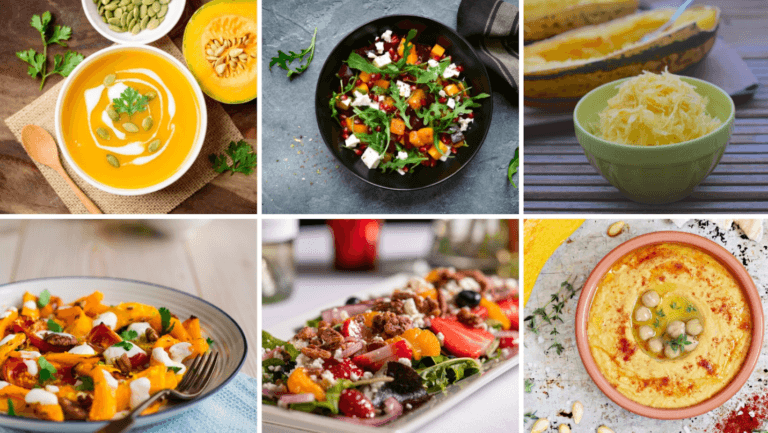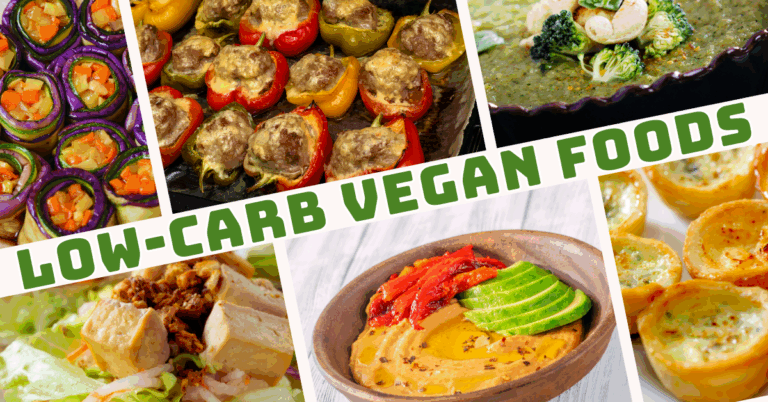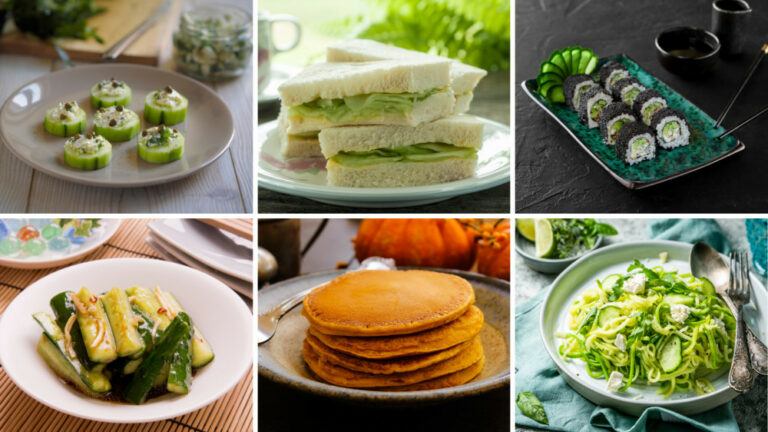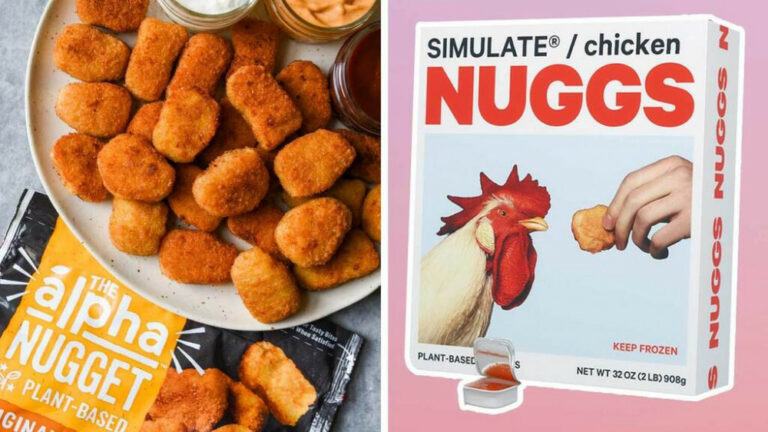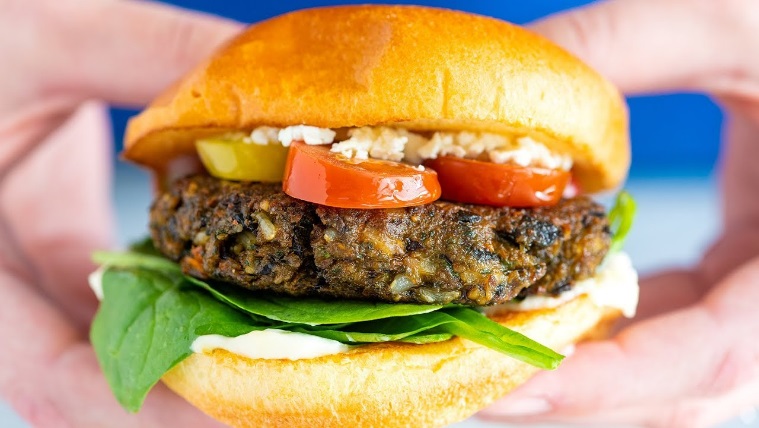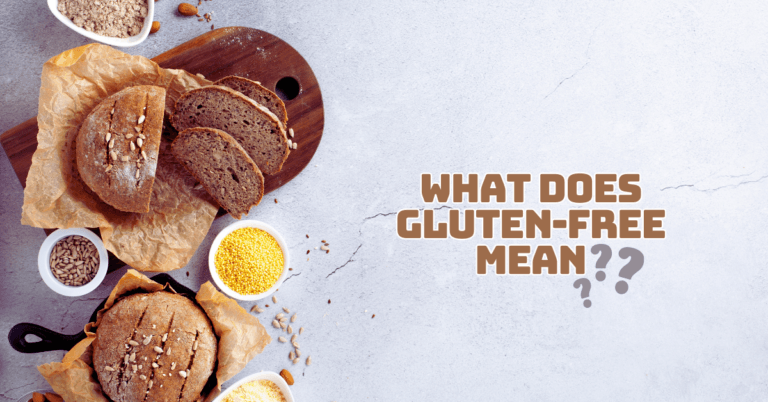18 Major Vegan Diet Mistakes
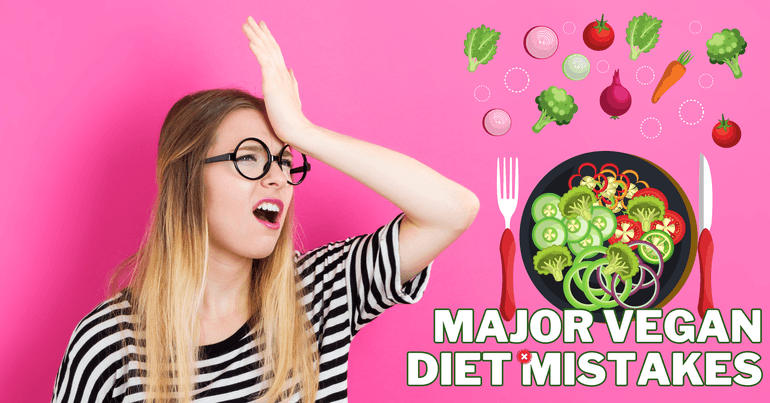
18 Major Vegan Diet Mistakes
Whatever your motivation for going vegan, it's easy to fall into the trap of believing that simply because you're vegan, you're automatically eating super-healthily.
But have you really examined your food intake, vitamin intake, and other aspects of your diet?
You're not alone if you answered “NO” to that question.
Now I’m sharing the list to serve as a guide to avoiding some of the vegan diet Mistakes.
1. Inadequate Energy Intake
Insufficient calorie intake is another major mistake made by many vegans. They believe that following a vegan diet entails consuming predominantly fresh fruits and vegetables. While it is true – those meals should undoubtedly be included in your diet – they are not the only foods you should consume.
If you exclusively eat those, you'll probably consume less than 1,000 calories per day, which isn't enough to keep you alive.
You must ensure that you replace all animal meat-based foods with a sufficient number of vegan-friendly foods as you eliminate all animal meat-based foods. You'll always have low energy and a general feeling of being poorly if you don't.
2. Protein Obsession
What sources do you use for protein? Is probably the most frequently asked question among folks who eat a plant-based diet. “What many people don't realize is that vegetarians and vegans nearly often meet or surpass the RDA for protein,” Davis explains. “Omnivores eat nearly twice as much as the RDA.”
This is also true for youngsters. One of the many advantages of obtaining protein from plants is that it promotes better health and longevity than protein obtained from animal sources.” Many vegetable types of meat, chicken, and fish substitutes have almost the same amount of protein as the animal goods they're replacing. Lentils, beans, tofu, tempeh, seeds, and nuts are examples of protein-rich plant foods.
3. Inadequate Planning
Another major blunder is a complete absence of planning. It is essential, as with any other nutritional strategy, that you plan your meals ahead of time. This is arguably even more crucial when following a vegan diet because acquiring enough nutritious protein is more difficult, and if you don't plan ahead, you could end up with amounts that are far too low to keep you healthy.
Make sure you have each protein source planned out for your meals and snacks at the very least. Chickpeas and lentils, beans, tofu, tempeh, as well as soybeans, almonds, and seeds, are all good vegan protein sources.
4. Overconsumption Of Processed Carbohydrates
It's also worth noting that just because you've decided to go vegan doesn't mean you can consume as many processed carbs as you want. Some people mistakenly believe that being vegan entitles them to consume as much bread, spaghetti, potatoes, granola bars, and other things as they like because they are “allowed” on their diet.
These foods are deficient in nutrients and can cause weight gain on any diet, including vegan ones. Make certain you don't forget about it.
5. Eating A Lot Of Refined Carbohydrates Or Cheese
When meat and fish aren't available, it's easy to revert to carbs like spaghetti, bread, or pizza, which are rich in calories and points but poor in value. They can all fit into a healthy plant-based eating pattern if you choose healthier versions—whole grain spaghetti with veggies; a tiny whole grain bread roll with a modest bit of nut butter or avocado or bean spread; a thin crust pizza with loads of veggies.
As a general guideline, avoid making refined carbohydrates or high-fat dairy products the focal point of any meal. Instead, Smith suggests putting 12 fruits and vegetables on your meal, 14 lean proteins (such as beans, tempeh, or nonfat plain yogurt), and 14 whole grains on your plate. If you're going out to eat, look over the menu ahead of time to see what you have to choose from and how they're prepared. If you want to eat something healthful and plant-based, call ahead to check if the restaurant can accommodate you.
6. Forgetting About Important Nutrients
Experts believe that a well-planned vegetarian or vegan diet can provide you with all of the nutrients you require. However, there are a few nutrients that plant-based consumers may be deficient in.
Vitamin B12
Caspero believes this is the most important to think about because it's only available in animal meals or fortified foods. “As a result, I frequently recommend a supplement,” she continues, “since the amount in fortified foods can vary so greatly.” Aim for a supplement with 2 mg per day, which may require taking two tablets per day for some brands.
Calcium
If you don't eat dairy, getting the recommended 1,000 mg every day could be a problem, according to a study. If you don't eat low-fat milk, yogurt, or cottage cheese on a regular basis, make it a point to include calcium-rich alternatives like tofu and kale in your diet.
Iron
Vegetarians get nearly the same amount of iron as meat-eaters, according to studies. Take steps to improve absorption as much as possible because the body has a tougher problem absorbing iron from plant foods than it does from meat. Caspero suggests mixing iron-rich diets with vitamin C-rich foods to achieve this. Consider black beans with capsicums or a slice of orange with your lunch.
7. Mock Meats Are What You Rely On
You might be tempted to go to the supermarket's imitation meat area while transitioning to a plant-based diet. It's not a good idea! According to Langevin, many meat-like items contain a lot of sodium, taste enhancers, and preservatives.
Not only that, but many replacement types of meat contain processed components like fillers and gums, according to Largeman-Roth. That's why reading the nutrition facts label on the back of the container is so important. Pay particular attention to salt (anything over 20% of your recommended value is too much), saturated fats, and protein content.
Examine the ingredient listings as well. “On your fake meats, actual, entire components like whole grains, almonds, peas, or soybeans should be at the top of the list,” adds Largeman-Roth.
8. You're Under The Impression That You Don't Have Many Choices
When dining out or in general, many new vegans lament the lack of food options. The lack of animal products can deplete your energy levels while you're just getting started. However, do not confine yourself to a kale-filled box. While veggies should be a big part of your plant-based diet, they're not the only thing you may consume. In fact, if you solely consume raw fruits and veggies, you'll likely fall far short of your daily calorie requirements.
Trust us when we say that vegans have a plethora of snack, lunch, and dessert options. There are plenty of vegan dishes to try thanks to the diversity of vegan ingredients and the ingenuity of vegan food bloggers. Do your homework and become familiar with the most common vegan substitutions. You will never be dissatisfied if you put out some effort.
9. Not Getting Enough Supplements
A vegan diet can provide many of the vitamins and minerals that meat-eaters require. Vitamin B12, which is most typically found in meat, fish, milk, and egg products, is an exception.
“Although deficiency takes time to develop, it's preferable to avoid it in the first place by eating fortified foods or taking supplements that meet this physiological requirement,” says the author. Stefanski explains.
You may need to supplement with other nutrients or take a multivitamin depending on your diet. Iron, calcium, zinc, vitamin D, omega-3 fatty acids, iodine, and vitamin A are all important nutrients to be mindful of.
However, you don't want to overdo it on a nutrient. As a result, it's a good idea to speak with a qualified dietitian who can assist you in ensuring that you're achieving your nutritional requirements.
10. Excessive Fiber Consumption Too Soon
Adding a lot of extra fiber at once — by eating more beans, legumes, and veggies might cause stomach pain (even in meat eaters!).
If you're on a vegan diet and experiencing a lot of bloating, gas, or constipation, consider drinking a lot more water and cutting back on the fiber until you adjust.
“The general approach is to progressively increase fiber while concurrently increasing your fluid consumption,” Wolfram explains.
She suggests beginning with little amounts of beans and paying attention to how different foods make you feel. Just because you don't feel well after one meal doesn't indicate you have an issue with it. Keep a lookout for recurring patterns.
11. Making An Attempt To Be A “Perfect Vegan”
Because veganism is both a philosophy and a diet, there can be a lot of pressure and shame associated with doing it “correctly” all of the time. However, this type of all-or-nothing mentality can lead to stress and even compulsive eating.
“Orthorexic behaviours might be caused by restrictive cognitive patterns around food,” Stefanski explains. “Letting yourself ease into a plant-based diet gradually, without imposing too many limitations on your choices at first, might be a less difficult transition.”
To make a difference, keep in mind that you don't have to be a perfect vegan. If you can't eat a completely vegan diet due to health issues or dietary constraints, there are still plenty of other methods to benefit animals, cut emissions, and save money.
Wolfram argues, “Veganism is about a lot more than just eating habits.”
12. Foods That Are Fortified Should Be Avoided
We may avoid foods with additional nutrients, such as fortified non-dairy milk, in an effort to eat plant-based whole meals. “When we include these fortified goods, it can be considerably easier to meet the RDA for calcium, vitamin B12, and vitamin D,” Davis explains. Keep in mind that most omnivores ingest vitamin D-fortified cow's milk, folic acid-fortified grains, and iodized salt. Including fortified foods in your diet can help fill in any nutritional gaps that may arise from diverse dietary patterns.
13. Going It Singly
It's easier to maintain a behaviour adjustment if we have assistance. Indeed, according to a study published in Health Education and Behavior in April 2018, participants who had social support were 61 percent more likely than those who didn't to change health behaviours including eating more fruits and vegetables and exercising.
For support, recipes, and friendship, Wolfram suggests connecting with other vegans online or in person. Avoid getting chastised by the “vegan police” for not being a perfect vegan.
“There are a lot of uplifting and helpful positive vegan spaces,” she says.
14. Drinking Too Little Water
It won't be a problem if you eat a full food plant-based diet, trust us. Your fiber consumption is about to skyrocket thanks to all the whole grains, legumes, fruits, vegetables, raw nuts, and seeds you'll be eating. This is excellent news because a high-fibre diet can lower your risk of heart disease, type 2 diabetes, stroke, and even cancer.
However, if you're new to a high-fibre diet, you'll want to drink plenty of water to keep your digestion in check. Every day, drink at least eight 8-ounce glasses of water. As your stomach adjusts to all the fiber, it will help move things along and prevent any digestive discomfort. Fill a water pitcher halfway with your 64 ounces of water and drink from it throughout the day to guarantee you're getting your fill.
For a refreshing twist, infuse your water with fresh-cut fruit, cucumbers, or mint.
15. Eating Insufficiently
We frequently hear from whole food plant-based newbies who say they're constantly hungry. These people may also complain of weariness as a result of their new lifestyle. Feeling constantly hungry, in addition to being tired, is frequently a symptom that you're not getting enough calories from a whole food plant-based diet. If this describes you, increase your intake of calorie-dense plant-based foods such as avocado, nut butter, and raw nuts.
There are other reasons you feel hungry all the time if you aren't suffering from exhaustion and believe you are eating enough. Here are eight ways to keep full on a plant-based diet.
16. Eating Too Few Whole Foods
Plant-based foods are generally considered to be healthy. Fruits, vegetables, grains, and beans are all good sources of minerals, vitamins, and fiber in a well-balanced diet. Many processed vegan foods and meat replacements are loaded with hazardous substances and additives. They're simple substitutions that taste like non-vegan staples.
Use veganism as an opportunity to eat more full, nutrient-dense, non-processed foods rather than these artificial meals. Use your imagination when it comes to starchy veggies and other plant-based protein sources. Replace meat with jackfruit, mushrooms, lentils, cauliflower, or potatoes in your meals. When shopping for groceries, aim to buy as little packaged food as possible. Foods like rice, beans, and oats, on the other hand, are outliers.
17. Using Cheese In Place Of Meat
Taking out the meat and replacing it with cheese is one of the simplest methods to make practically any dish vegetarian. In terms of flavour, the substitution works well in sandwiches, salads, pasta, and a variety of other recipes.
While cheese provides a decent source of protein, vitamins, and minerals, it cannot match the full range of nutrients found in meat.
For example, one ounce (28 grams) of beef contains four times the iron and twice the zinc of one ounce of cheddar cheese.
Cheese also has more calories and less protein than meat.
In reality, cheese has just approximately 80% of the protein found in chicken per ounce, but roughly 2.5 times the calories. To achieve your nutrient demands, you should incorporate a range of plant items in your diet rather than merely substituting meat with cheese.
Chickpeas, quinoa, tempeh, lentils, beans, and almonds are all good sources of protein for vegetarians.
18. Omega-3 Fatty Acid Deficiency
Omega-3 fatty acids are a necessary component of a healthy diet.
They've been demonstrated to lower triglycerides in the blood, reduce inflammation, and protect against dementia.
The most prevalent sources of omega-3 fatty acids are fatty fish and fish oil.
They contain the omega-3 fatty acids docosahexaenoic acid (DHA) and eicosapentaenoic acid (EPA), which have been demonstrated to be the most helpful.
Plant meals, on the other hand, include alpha-linolenic acid (ALA), an omega-3 fatty acid that your body must convert to DHA and EPA before it can be used. Regrettably, your body can only convert about 5% of ALA to EPA and less than 0.5 percent of ALA to DHA.
Eat a lot of ALA-rich foods or consider taking a plant-based omega-3 supplement like algal oil to meet your omega-3 needs while on a vegetarian diet.
Chia seeds, walnuts, hemp seed, flaxseeds, Brussels sprouts, and perilla oil are high in ALA omega-3 fatty acids.
You may easily achieve your omega-3 fatty acid requirements by including a few servings of these foods in your daily diet.
Conclusion
A well-balanced vegan or vegetarian diet can be extremely nutritious and healthy.
However, if not properly planned, these diets can lead to dietary deficits and serious health concerns.
Check out this article if you're just getting started eating this way.
Simply eat a lot of whole foods and make sure you obtain a few critical nutrients on a regular basis to maintain a healthy vegan or vegetarian diet.
I trust you enjoyed this article about the 18 Major Vegan Diet Mistakes. Please stay tuned for more blog posts to come shortly. Take care!
JeannetteZ
>>>Want To Become Vegan And Learn How To Create Delicious, Cruelty-Free, Healthy AND 100% Vegan Meals? Try These Amazing Vegan Cooking Courses With This Free 7-DAY MEMBERSHIP<<<
Your Opinion Is Important To Me
Do you have any questions or ideas? I would love to hear from you. Would you please leave me your questions, experience, and remarks about this article on the 18 Major Vegan Diet Mistakes, in the comments section below? You can also reach me by email at Jeannette@LivingTheVeganLifestyle.org.
Here are links to some of my favourite articles:
Delicious Homemade Vegan Salmon
Best Kid-Friendly Vegan Zinc Sources
Best Vegan Restaurants In Lausanne, Switzerland
10 Best Vegan Pasta Recipes For Your Kids
Best 15 Vegan Iodine Sources For Your Kids







